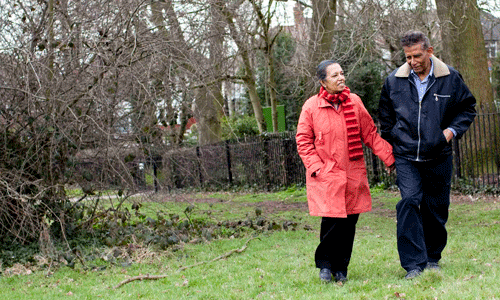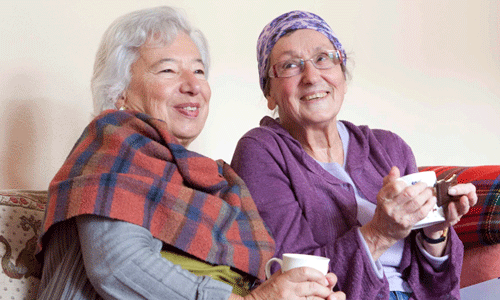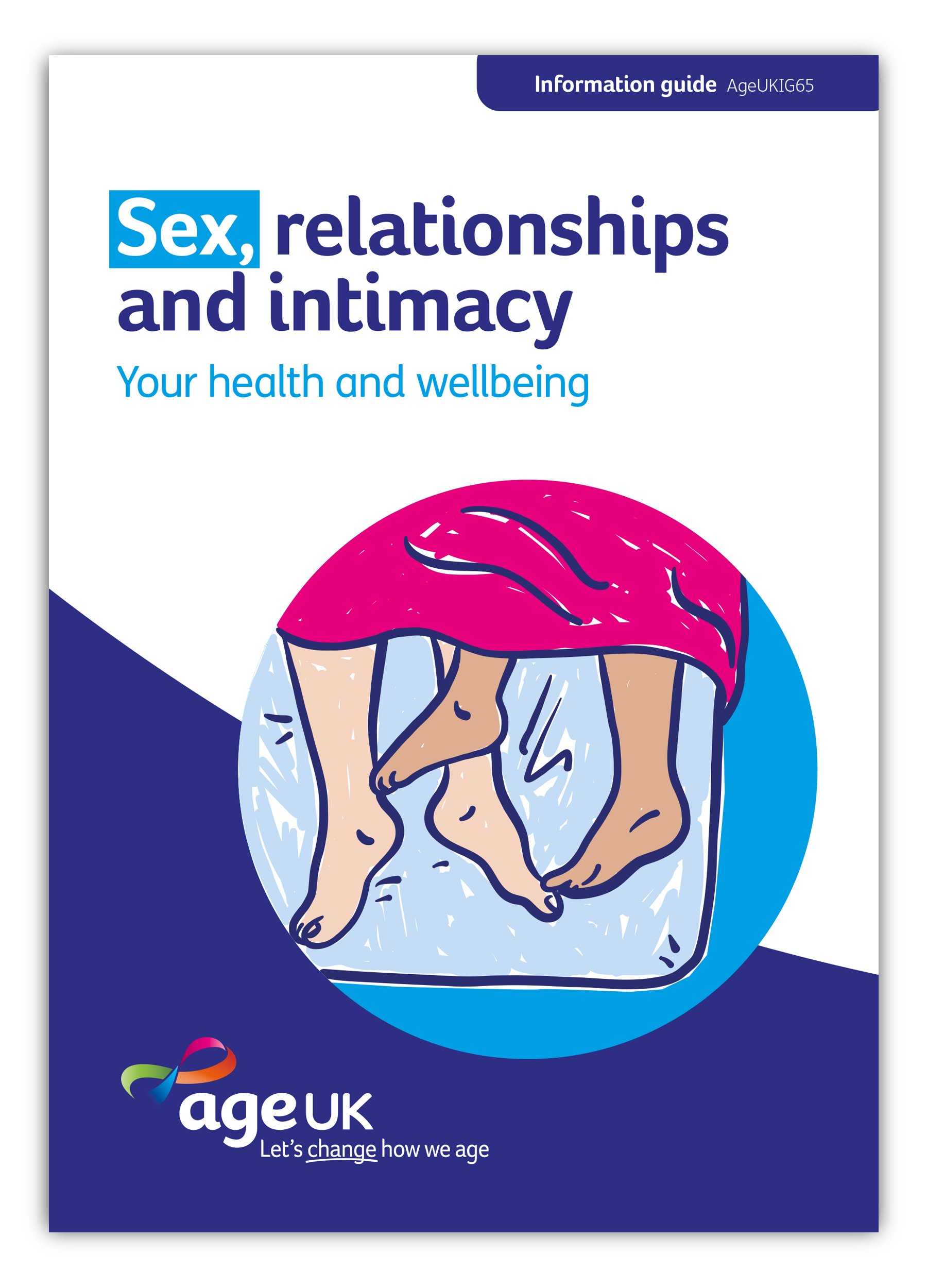
Menopause symptoms and finding support
Menopause is a completely natural part of life when hormones are changing, but some people can find this difficult or confusing. If you or someone you know needs support, there's information and advice available to help.
What is menopause?
Perimenopauseis the period of time leading up to menopause. It begins when oestrogen levels start changing and ends when you reach menopause. This can start anywhere from late 20s to late 40s.
Menopause is the result of changes in the levels of a hormone called oestrogen. It generally happens between the ages of 45-55, with the average being 51. You are considered to have reached menopause when you haven’t had a period for 12 months. It can also happen earlier, sometimes as the result of surgery or medical treatments, such as a hysterectomy or chemotherapy.
What are the symptoms of menopause?
Perimenopause and menopause are both physical changes and their symptoms vary greatly from person to person. The symptoms can have an impact on your physical or mental wellbeing.
1 in 4 who go through menopause will be symptom-free, while 1 in 4 will have severe symptoms that have an impact on their day-to-day lives. While mainly women will be affected by perimenopause and menopause, these symptoms can be experienced by people who are trans, non-binary or intersex due to hormone treatments or the withdrawal of hormone treatments.
There are over 30 recognised symptoms, which include:
Physical health symptoms
- Hot flushes
- Night sweats
- Dizziness
- Fatigue
- Headaches
- Urinary problems, such as increased frequency or urgency or recurrent UTIs
- Stiff joints, aches and pains
- Changes in periods
- Insomnia
- Itchy skin
- Increased risk of osteoporosis
- Weight gain
- Vaginal dryness
- Change in libido
Mental health symptoms
- Anxiety
- Memory loss
- Depression
- Reduced concentration
- Brain fog
- Mood swings
Find out more about the symptoms of menopause on the NHS website
How long do symptoms last?
Symptoms vary from person to person — and so does the duration. Some people may experience them for months to years. Symptoms can start before your periods stop (during perimenopause) and continue after the menopause. How symptoms are experienced can also vary over time.
How can I manage symptoms of menopause?
A healthy diet and regular exercise, alongside simple lifestyle changes, can improve some symptoms and are important parts of the toolkit in dealing with menopause.
There's treatment available to help with symptoms and top up hormone levels. Modern forms of hormone replacement therapy (HRT) are low-risk.
If you are considering HRT, there are different types and doses that you may be offered depending on your medical history. Talk to your healthcare provider about the options and the possible benefits and risks of each of them.
Consider what you may want to ask when being prescribed HRT. For questions and issues to consider, see:
Getting the most from your medicines
If you choose not to or are unable to take HRT, there may be other non-hormonal medicines that can help.
How do I find support for menopause?
There are different kinds of support available for those going through perimenopause or menopause.
Talking helps
It's important to know that you're not alone and support is out there. Try to be open about your symptoms with your partner, family and friends – it can help them understand what you're going through.
Sharing experiences with other people going through the same thing could be reassuring. There are many support groups, websites, blogs and videos online where people have shared their stories of menopause.
Cognitive Behavioural Therapy (CBT)
You may find that an NHS talking therapy service offering CBT can help with low mood and anxiety associated with the menopause.
You do not need to have a referral from a GP to access this service.
Find NHS talking therapies for anxiety and depression
Support from your doctor
If you have any questions about treatment, or if you're struggling emotionally or physically, it's important that you speak to your doctor. Some areas have specialist Menopause Clinics that can provide advice on how to manage symptoms.
Post menopause health
Whilst symptoms might improve after menopause, some may continue or intensify and can last for years. The lower level of oestrogen as a result of the menopause can increase your risk of developing some health conditions, such as osteoporosis or heart disease.
For further advice, see Royal Osteoporosis Society and British Heart Foundation.
We're here to help
We offer support through our free Advice Line. Lines are open 8am-7pm, 365 days a year. We also have specialist advisers at over 120 local Age UKs. You can contact us on 0800 678 1602.
We work with Wordskii to offer free interpreted calls. Visit the Wordskii website and select the language you would like to take the call in from the menu at the top right of the screen. This will tell you the best number to call.






